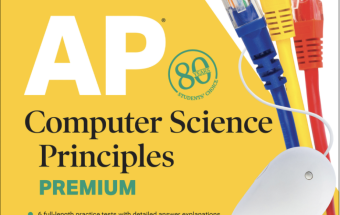Practice Exercises - Developmental Psychology - AP Psychology Premium 2024
PRACTICE QUESTIONS
1. Some researchers consider developmental psychology an applied research topic because
(A) it is more easily applied to people’s lives than research such as behaviorism.
(B) researchers apply findings and theories from other areas of psychology to the specific topic of human development.
(C) it is more commonly studied by a graduate student rather than an undergraduate because of the applications for other research.
(D) doing original research in this area is difficult, so most of the research is about application.
(E) pure research is difficult to gain support for, especially when a researcher needs to recruit children as participants.
2. You read in your philosophy class textbook that humans are born “tabula rasa” or “blank slates.” As a student of psychology, which of the following responses would you have?
(A) The statement is incorrect. Humans may be born without reflexes and instincts, but we are born with the ability to learn them.
(B) The statement is correct. Humans are born without instincts or other mechanisms in place to help us survive.
(C) The statement is correct. Humans are born with a certain number of neurons, but most develop later as we learn.
(D) The statement is incorrect. Humans are born with a set of reflexes that help us survive.
(E) The statement is impossible to prove since we cannot infer what babies know or do not know due to their lack of language.
3. Which of the following statements is most true about how a newborn’s senses function?
(A) A newborn’s senses function the same as an adult’s since the sensory apparatus develops in the womb.
(B) All of our senses function normally when we are newborns except taste due to lack of stimulation in the womb.
(C) All of our senses function normally when we are newborns except touch due to lack of stimulation in the womb.
(D) A newborn’s senses function at a very low level but develop very quickly with experience.
(E) Most senses function normally, but sight develops slowly with experience.
4. Most prenatal influences on humans are genetic or hormonal in origin except for
(A) teratogens.
(B) stress on the mother.
(C) parents’ level of education about fetal development.
(D) family history of mental illness.
(E) operant conditioning occurring before birth.
5. Parental involvement can have dramatic effects on all the following human traits except
(A) intelligence.
(B) reading ability.
(C) self-esteem.
(D) motor development.
(E) emotional development.
6. A principal difference between a longitudinal study and a cross-sectional study is the
(A) number of participants involved.
(B) developmental stage of the participants.
(C) time span of the study.
(D) statistical methods employed to evaluate the data.
(E) sampling method used to choose participants.
7. Harlow’s experiments with substitute mothers made of wire demonstrated the importance of what aspect of nurturing?
(A) feeding
(B) responsiveness to needs
(C) imprinting
(D) touch
(E) stranger anxiety
8. According to research, the most advantageous parenting style for children’s development is
(A) authoritarian, because children learn boundaries quickly and appreciate consistency.
(B) permissive, because young children need to explore the environment more than they need guidelines for behavior.
(C) authoritarian, because it combines the best elements of the permissive and authoritative styles.
(D) securely attached, because children are confident parents will meet their needs.
(E) authoritative, because children have boundaries that are reasonable and justified.
9. A major difference between the psychoanalytic stage theories (Freud and Erikson) and the more cognitive or experiential stage theories (Piaget and Kohlberg) is
(A) the psychoanalytic theories are less empirical.
(B) the psychoanalytic theories were based exclusively on data from children with developmental disorders.
(C) Freud and Erikson studied only young children, while Piaget and Kohlberg studied the full range of development.
(D) only the psychoanalytic theories take parental effects into account.
(E) the psychoanalytic theories are continuous, the others are discontinuous.
10. You have a cousin named Holden who flunked out of three expensive private schools and was arrested for wandering the streets of New York using his parents’ credit card. Holden is intelligent but cannot seem to get motivated toward any career. What conflict would Erikson say Holden is struggling with?
(A) autonomy versus authority
(B) identity versus role confusion
(C) integrity versus despair
(D) industry versus inferiority
(E) trust versus isolation
11. In which stage of cognitive development do infants learn object permanence?
(A) preoperational
(B) formal-operations
(C) autonomy
(D) sensorimotor
(E) conventional
12. According to Erikson’s theory, adolescents are most primarily concerned in a search for
(A) career.
(B) identity.
(C) affection.
(D) autonomy.
(E) archetypes.
13. The ability to generate several alternate hypotheses in order to explain a phenomenon demonstrates cognition in which of the following Piagetian stages?
(A) operational
(B) hypothetical-operations
(C) syllogistic
(D) formal-operations
(E) abstract reasoning
14. Which of the following attachment styles did Mary Ainsworth find most often in her research (in about 66 percent of the cases she studied)?
(A) avoidant
(B) authoritarian
(C) secure
(D) anxious/ambivalent
(E) authoritative
15. Which of the following is the correct term for a mental rule Piaget said we use to interpret our environment?
(A) schema
(B) syllogism
(C) assimilation
(D) accommodation
(E) hypothesis




